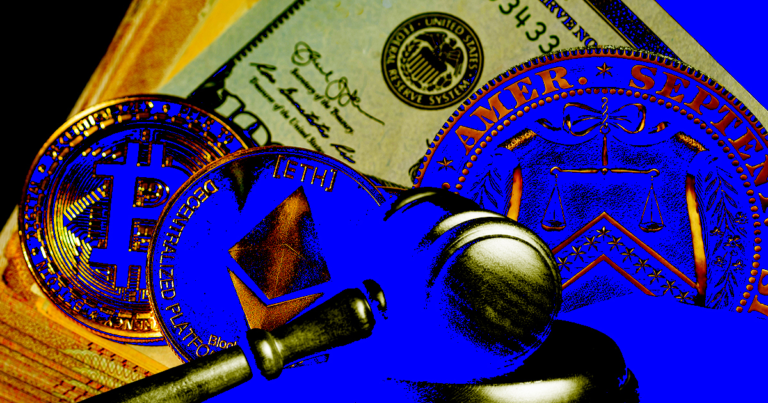 US consumer protection watchdog warns crypto could pose risk to financial stability
US consumer protection watchdog warns crypto could pose risk to financial stability US consumer protection watchdog warns crypto could pose risk to financial stability
The Financial Stability Oversight Council made recommendations to close regulatory gaps in a bid to strengthen consumer protections and limit the threat to financial markets.

Cover art/illustration via CryptoSlate. Image includes combined content which may include AI-generated content.
A federal U.S. government organization said crypto markets pose a threat to broader financial stability if they continue growing without more thoughtful oversight and enforcement.
The Financial Stability Oversight Council (FSOC) is chaired by the Secretary of the Treasury, Janet Yellen, and is tasked with identifying risks and responding to threats to financial stability.
Crypto markets in the firing line
In a report released on Oct. 3, the FSOC mentioned “relatively limited” integration between crypto and legacy markets but warned that this could change “rapidly,” considering the growing popularity of digital assets in recent times.
The report listed four specific crypto-threats that could spill over and negatively impact legacy markets. They were:
- Lack of controls in preventing run risks or sufficient oversight on excessive leverage.
- The price of crypto assets appeared to be speculation driven, making them highly volatile.
- Some crypto firms “have risky business profiles and opaque capital and liquidity positions.”
- The centralization of “key services” or vulnerabilities related to distributed ledger technology can lead to operational risks.
Regarding adhering to existing regulatory structures, the FOSC said some crypto firms avoided regulatory systems. In contrast, others had actively participated by obtaining crypto-specific charters or licenses.
Concerns were raised about misrepresentation, for example, false statements about federal deposit insurance and the degree to which some firms had advertised themselves as regulated — all of which give consumers a false sense of protection.
To address regulatory gaps, the FOSC recommended spot cryptocurrencies not deemed securities fall under “limited direct federal regulation.” Implementing a regulatory arbitrage process would give authorities insight, supervise activities, and research into vertical integrations that offer retail consumers direct market access, leaving them exposed to practices such as automated liquidation.
The SEC comments on the FSOC report
SEC Chair Gary Gensler released a statement in support of the FSOC’s findings and recommendations.
In addition, Gensler also picked up on several points raised by the FSOC, particularly the operational risks posed by centralized service providers and how that contradicts how the industry portrays itself.
“This market isn’t so decentralized. Now, we see this industry populated by large, concentrated intermediaries, which often are an amalgam of services that typically are separated from each other in the rest of the securities markets.”
Similarly, the SEC Chair believes most crypto tokens are securities and would fall under the SEC’s remit. Gensler said:
“Of the nearly 10,000 tokens in the crypto market, I believe the vast majority are securities. Offers and sales of these crypto security tokens are covered by the securities laws.”
He added that “this market” cannot undermine the broader financial system.



























































